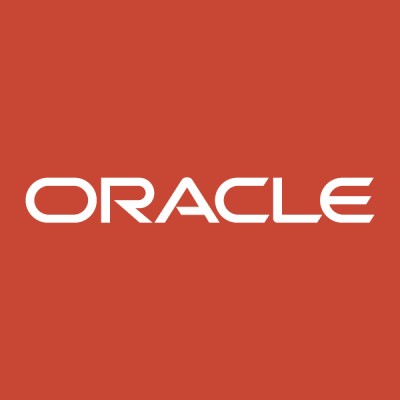Oracle's EHR Woes: A Software Storm in U.S. Hospitals
May 3, 2025, 2:55 am
Community Health Systems (CHS)
Location: United States, Tennessee, Franklin
Employees: 10001+
Founded date: 1985

Location: United States, Missouri, Kansas City
Employees: 10001+
Founded date: 1979
In the world of healthcare, software is the lifeblood. It keeps the pulse of patient care steady. But what happens when that lifeblood runs dry? Recently, Oracle Health faced a significant crisis, triggering a five-day software outage that rattled several hospitals under Community Health Systems (CHS). This incident was not just a glitch; it was a wake-up call for the entire electronic health record (EHR) industry.
On April 23, 2025, Oracle engineers were conducting routine maintenance. In a moment of oversight, they deleted critical storage linked to a key database. The result? A cascade of chaos. Hospitals were forced to revert to paper-based records, a method as outdated as using a quill and ink in the digital age. CHS, which operates 72 hospitals across 14 states, had to activate “downtime procedures.” This is a euphemism for scrambling to maintain patient care without the digital tools that have become essential.
The outage affected “several” hospitals, with reports indicating that as many as 45 facilities were impacted. The disruption was not due to a cyberattack, but rather a human error. In the high-stakes environment of healthcare, such mistakes can have dire consequences. Yet, CHS reported that despite the major outage, their teams managed to maintain services without a material impact on patient care. This speaks volumes about the resilience of healthcare professionals, but it also highlights the fragility of our reliance on technology.
Oracle's foray into the EHR market began with the $28.3 billion acquisition of Cerner in 2022. This move positioned Oracle as the second-largest player in the EHR landscape, trailing only behind Epic Systems. However, this recent outage raises questions about Oracle's ability to compete effectively. The company has been struggling with a complex EHR rollout for the Department of Veterans Affairs, plagued by safety concerns and deployment delays.
As Oracle’s systems came back online, CHS began the painstaking process of re-establishing full functionality. The software outage was a stark reminder of the vulnerabilities inherent in digital health records. EHRs are supposed to streamline patient care, making it more efficient and effective. But when they fail, the entire system can grind to a halt.
In the wake of this incident, Epic Systems is likely smiling. The company recently reported its largest net gain in hospital market share on record, adding 176 facilities and nearly 30,000 beds in 2024. Meanwhile, Oracle lost 74 sites and over 17,000 beds during the same period. This stark contrast paints a picture of a company struggling to keep pace in a competitive landscape.
Epic's reputation for strong customer partnerships has propelled it to the forefront of EHR considerations. Healthcare organizations have voiced concerns about Oracle's “poor partnership and lack of follow-through on promises.” This sentiment is a heavy anchor weighing down Oracle's ambitions. While the company has introduced new AI features and a fresh EHR, the recent outage casts a long shadow over its progress.
Oracle's founder, Larry Ellison, has expressed optimism about the company's future. He touts the unique capabilities of Oracle's EHR, including advanced AI features like transcription and order distribution. However, the reality on the ground tells a different story. Outages and rocky deployments have marred Oracle's reputation, making it difficult to gain the trust of healthcare providers.
The healthcare industry is at a crossroads. As technology continues to evolve, the stakes are higher than ever. EHRs are not just software; they are the backbone of modern healthcare. A failure in this system can lead to delays in treatment, miscommunication, and ultimately, compromised patient safety.
The recent outage at CHS serves as a cautionary tale. It underscores the importance of robust systems and the need for continuous improvement in technology. Healthcare providers must be able to rely on their EHR systems, especially in times of crisis.
As Oracle works to recover from this setback, the company must focus on rebuilding trust. It needs to demonstrate that it can deliver on its promises and provide a reliable product. The competition with Epic is fierce, and every misstep can cost market share.
In conclusion, the software outage at Oracle Health is more than just a technical glitch. It is a reflection of the challenges facing the EHR industry. As hospitals navigate the complexities of patient care, they need partners they can trust. The road ahead for Oracle is fraught with challenges, but it also presents an opportunity for growth and improvement. The question remains: can Oracle rise to the occasion, or will it be left in the dust as Epic continues to soar? The answer will shape the future of healthcare technology in the United States.
On April 23, 2025, Oracle engineers were conducting routine maintenance. In a moment of oversight, they deleted critical storage linked to a key database. The result? A cascade of chaos. Hospitals were forced to revert to paper-based records, a method as outdated as using a quill and ink in the digital age. CHS, which operates 72 hospitals across 14 states, had to activate “downtime procedures.” This is a euphemism for scrambling to maintain patient care without the digital tools that have become essential.
The outage affected “several” hospitals, with reports indicating that as many as 45 facilities were impacted. The disruption was not due to a cyberattack, but rather a human error. In the high-stakes environment of healthcare, such mistakes can have dire consequences. Yet, CHS reported that despite the major outage, their teams managed to maintain services without a material impact on patient care. This speaks volumes about the resilience of healthcare professionals, but it also highlights the fragility of our reliance on technology.
Oracle's foray into the EHR market began with the $28.3 billion acquisition of Cerner in 2022. This move positioned Oracle as the second-largest player in the EHR landscape, trailing only behind Epic Systems. However, this recent outage raises questions about Oracle's ability to compete effectively. The company has been struggling with a complex EHR rollout for the Department of Veterans Affairs, plagued by safety concerns and deployment delays.
As Oracle’s systems came back online, CHS began the painstaking process of re-establishing full functionality. The software outage was a stark reminder of the vulnerabilities inherent in digital health records. EHRs are supposed to streamline patient care, making it more efficient and effective. But when they fail, the entire system can grind to a halt.
In the wake of this incident, Epic Systems is likely smiling. The company recently reported its largest net gain in hospital market share on record, adding 176 facilities and nearly 30,000 beds in 2024. Meanwhile, Oracle lost 74 sites and over 17,000 beds during the same period. This stark contrast paints a picture of a company struggling to keep pace in a competitive landscape.
Epic's reputation for strong customer partnerships has propelled it to the forefront of EHR considerations. Healthcare organizations have voiced concerns about Oracle's “poor partnership and lack of follow-through on promises.” This sentiment is a heavy anchor weighing down Oracle's ambitions. While the company has introduced new AI features and a fresh EHR, the recent outage casts a long shadow over its progress.
Oracle's founder, Larry Ellison, has expressed optimism about the company's future. He touts the unique capabilities of Oracle's EHR, including advanced AI features like transcription and order distribution. However, the reality on the ground tells a different story. Outages and rocky deployments have marred Oracle's reputation, making it difficult to gain the trust of healthcare providers.
The healthcare industry is at a crossroads. As technology continues to evolve, the stakes are higher than ever. EHRs are not just software; they are the backbone of modern healthcare. A failure in this system can lead to delays in treatment, miscommunication, and ultimately, compromised patient safety.
The recent outage at CHS serves as a cautionary tale. It underscores the importance of robust systems and the need for continuous improvement in technology. Healthcare providers must be able to rely on their EHR systems, especially in times of crisis.
As Oracle works to recover from this setback, the company must focus on rebuilding trust. It needs to demonstrate that it can deliver on its promises and provide a reliable product. The competition with Epic is fierce, and every misstep can cost market share.
In conclusion, the software outage at Oracle Health is more than just a technical glitch. It is a reflection of the challenges facing the EHR industry. As hospitals navigate the complexities of patient care, they need partners they can trust. The road ahead for Oracle is fraught with challenges, but it also presents an opportunity for growth and improvement. The question remains: can Oracle rise to the occasion, or will it be left in the dust as Epic continues to soar? The answer will shape the future of healthcare technology in the United States.
